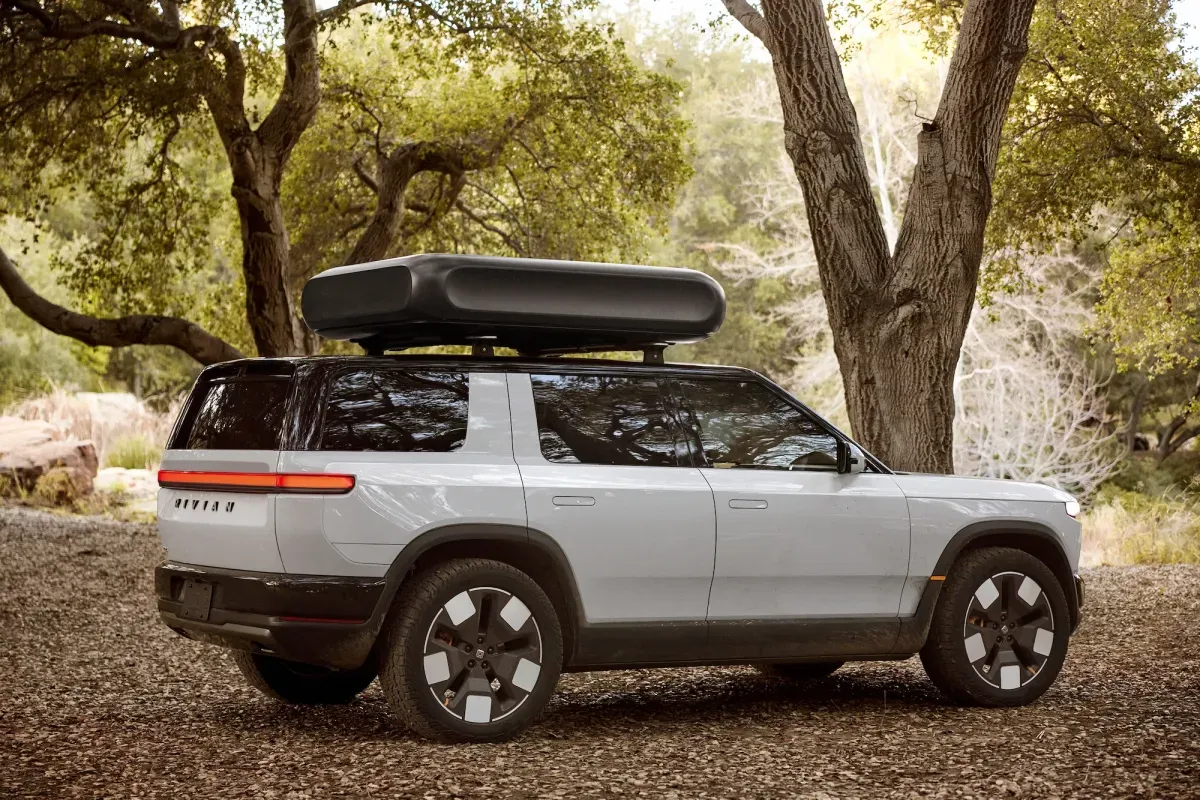Volkswagen investment in Rivian provides critical funding
Rivian has officially secured the next $1 billion tranche from Volkswagen, a lifeline that could help stabilize the electric vehicle (EV) startup amid declining sales and growing market challenges. This funding, delivered through a share sale, is part of a broader $5.8 billion joint venture announced in 2024 between Rivian and the German auto giant. While the partnership focuses on developing next-generation EV technology, this latest financial infusion arrives just as Rivian reported a troubling 23% drop in vehicle deliveries in Q2 2025 compared to the same period last year.
Image Credits:Rivian
The drop in Rivian sales comes as the company continues to struggle with high production costs, trade barriers, and weakened consumer demand. The company delivered just 10,661 EVs this past quarter—a modest gain over its Q1 numbers, but still significantly behind previous years. Even if Rivian meets the upper end of its revised 2025 delivery guidance (46,000 units), it will still fall short of its 2023 and 2024 performance. The Volkswagen investment not only buys Rivian time but also signals confidence in the company’s long-term prospects—particularly its anticipated R2 SUV slated for 2026.
Rivian sales struggles in 2025 reflect deeper EV market issues
Rivian’s dip in Q2 deliveries isn’t just a blip—it represents a broader slowdown in the U.S. electric vehicle market, exacerbated by political and economic turbulence. With tariffs and trade restrictions under President Trump’s administration driving up manufacturing costs, Rivian has found it increasingly difficult to maintain momentum. Supply chain snags and geopolitical uncertainty have pushed Rivian to reassess its full-year sales forecast, now projecting just 40,000–46,000 EVs sold by the end of 2025. That’s a stark contrast to the aggressive growth expectations Rivian laid out just a couple of years ago.
This challenging environment has prompted Rivian to double down on efficiency. To achieve its second-ever quarterly gross profit earlier this year, the EV maker invested heavily in redesigning its flagship R1S SUV and R1T pickup truck. These updated models, launched in late 2024, are significantly cheaper to manufacture thanks to simplified electrical architectures and more cost-effective software solutions. The result? Better margins and lower production overheads—but not enough to offset Rivian’s overall losses just yet.
Volkswagen and Rivian tech partnership looks to future EV innovation
The $1 billion Rivian just received is part of a strategic agreement that could reshape the future of EV innovation. Through the joint venture, Rivian has contributed key intellectual property—its advanced software platform and flexible electrical architecture—alongside personnel and product insights. Volkswagen, for its part, is expected to integrate these technologies into its upcoming EVs. The partnership highlights the growing importance of software-defined vehicles and underscores Rivian’s role as a leader in EV tech innovation despite its financial hurdles.
Volkswagen’s initial $1 billion arrived in late 2024 via a convertible note, but this most recent investment was contingent on Rivian hitting certain financial milestones. Reaching gross profitability in Q1 2025 allowed Rivian to unlock the next round of funding, which should help sustain operations while the company gears up for the R2 SUV launch. That model, expected to be more affordable and accessible than Rivian’s current offerings, is seen as a potential volume driver that could finally help the startup break into mainstream EV adoption.
Rivian faces new threats from federal EV policy changes
Even with streamlined operations and Volkswagen’s backing, Rivian’s road ahead is anything but smooth. The company now faces looming regulatory threats—chief among them, the potential elimination of the federal EV tax credit. A new bill, dubbed “One Big Beautiful Bill,” is making its way through Congress and could kill the $7,500 tax break that currently makes EVs more affordable for consumers. Without that incentive, demand for Rivian’s vehicles could soften further, especially in an already cautious market.
The bill has already passed the U.S. Senate and is back under review in the House of Representatives. If it becomes law and takes effect in September 2025 as expected, the cost barrier for electric vehicles will rise overnight. That puts pressure on Rivian to either cut costs further or offer incentives of its own—neither of which are easy options for a company still burning cash. With only a narrow window to capitalize on existing tax credits, Rivian may need to push short-term sales aggressively while still planning for a long-term turnaround with the R2.


